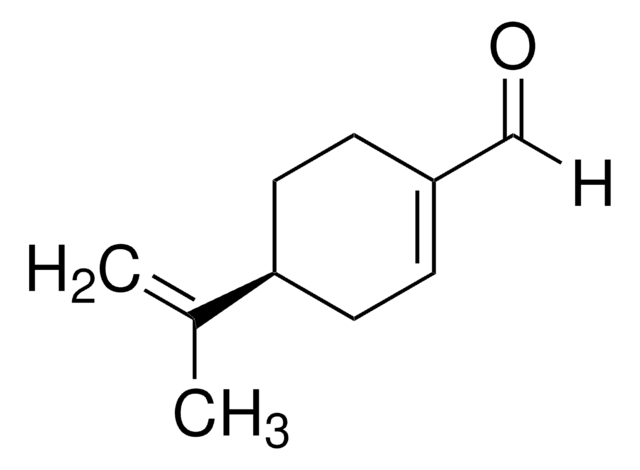SML0049
Polygodial
≥97% (HPLC)
Synonym(s):
(1R,4aS,8aS)-1,4,4a,5,6,7,8,8a-Octahydro-5,5,8a-trimethyl-1,2-naphthalenedicarboxaldehyde
Select a Size
$180.00
List Price$200.00Save 10%Estimated to ship onMay 19, 2025FromMILWAUKEE
Notify Me
Get notified when this item is ready to ship via email.
Select a Size
About This Item
$180.00
List Price$200.00Save 10%Estimated to ship onMay 19, 2025FromMILWAUKEE
Notify Me
Get notified when this item is ready to ship via email.
Recommended Products
assay
≥97% (HPLC)
form
powder
color
white to beige
solubility
DMSO: 20 mg/mL, clear
storage temp.
−20°C
SMILES string
O=C[C@@H]1[C@@]2([C@H](C(CCC2)(C)C)CC=C1C=O)C
InChI
1S/C15H22O2/c1-14(2)7-4-8-15(3)12(10-17)11(9-16)5-6-13(14)15/h5,9-10,12-13H,4,6-8H2,1-3H3/t12-,13-,15+/m0/s1
InChI key
AZJUJOFIHHNCSV-KCQAQPDRSA-N
Biochem/physiol Actions
Storage Class
11 - Combustible Solids
wgk_germany
WGK 3
flash_point_f
Not applicable
flash_point_c
Not applicable
Choose from one of the most recent versions:
Certificates of Analysis (COA)
Don't see the Right Version?
If you require a particular version, you can look up a specific certificate by the Lot or Batch number.
Already Own This Product?
Find documentation for the products that you have recently purchased in the Document Library.
Active Filters
Our team of scientists has experience in all areas of research including Life Science, Material Science, Chemical Synthesis, Chromatography, Analytical and many others.
Contact Technical Service








